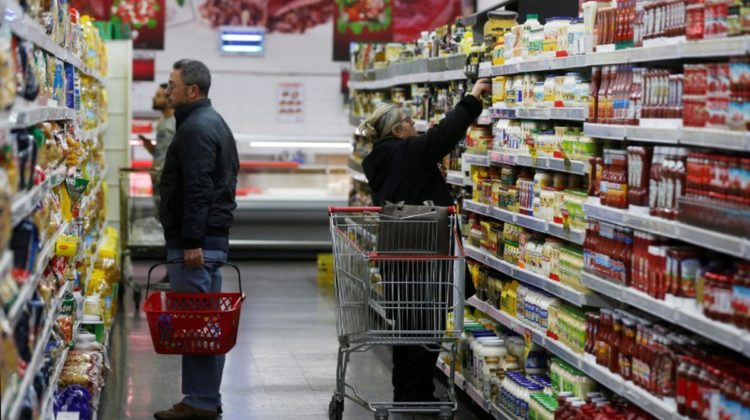One month ago, PM Diab made a not-so-surprising-with-all-the-cameras-around inspection to a major Lebanese supermarket. Back then, he warned against hiking prices and stressed that “a 70% hike in prices is rejected”, but neither him nor the Economy Ministry took any measures to try and regulate these prices. Instead, he appeared shocked yesterday by the soaring prices of goods, claiming that things are getting out of hand, and that some merchants are setting higher prices regardless of the dollar exchange rate.
Yes there are greedy merchants out there and whoever hikes prices irresponsibly should be fined, but the real problem faced by the majority of big chain supermarkets and food outlets is the dollar shortage. Why is that? here’s a brief explanation:
80-85% of items on shelves in supermarkets are imported (Food and Non-Food)
–> This means that suppliers need USD to buy and import their goods.
–> Even locally produced products need imported raw material.
New prices with every dollar value change
–> Suppliers need to protect their replacement value & secure continuity of their stocks.
–> If they can’t cover the dollar & stock value, they cannot buy the same quantity from abroad ( in dollars).
No international money transfers, new cash payment terms:
–> Suppliers want to get paid in cash and in dollars now.
–> High rate, Extreme payment terms, Unavailability of Fresh USD, inability to use banks for checks.
–> Market is changing into cash economy.
Cashflow is not enough:
–> Put aside the stocks, there are other expenses like salaries, overheads like rent, diesel for generators that all need to be paid in cash.
–> People using credit cards or debit cards in supermarket are on 1515 value plus retailers are getting virtual dollars in their banks from customers, it’s useless as they cannot use or withdraw.
To simplify things: Any item worth 1$ sold at 1515 rate, then you go back to buy the same new item from merchant at the 2000 rate, you can now buy 70% worth of stock of this item. So if you continue the cycle with exchange rate increasing you purchasing value will go down to 50% then to 25% and then buy. This is assuming you sold all your products and not endure any losses from damaged goods, unsold goods or returned ones.
So what should the government do?
Instead of showing up at supermarkets with a dozen bodyguards and security forces, or threatening businesses without concrete evidence on what’s happening, the concerned ministries & PM should sit with the supermarkets, food outlets and all F&B businesses and figure out a way to stabilize the price increase as long as the dollar rate is still fluctuating.
More importantly, allow banking transactions locally and internationally, at least for essential goods like rice, sugar, oil, pasta, cheese, meat, milk etc..
When someone shows a picture of a product priced at LL15,000 at a small grocery store and LL26,000 at a supermarket, chances are the supermarket had to re-stock and set new prices, and as soon as this grocery store runs out, he will price them higher than the supermarket eventually.
Keeping the dollar fluctuating as it is now is not sustainable for any businesses, and unless supermarkets match their replacement cost, they will have to shutdown branches and operate with empty shelves.
Here’s a Twitter thread on this topic as well.










[vivafbcomment]